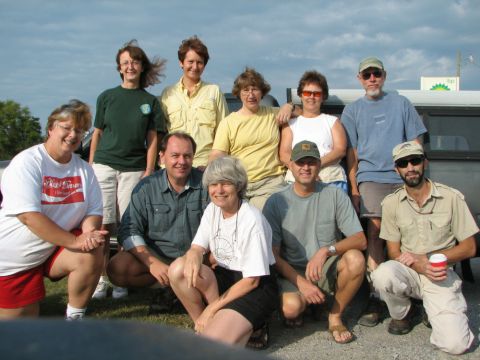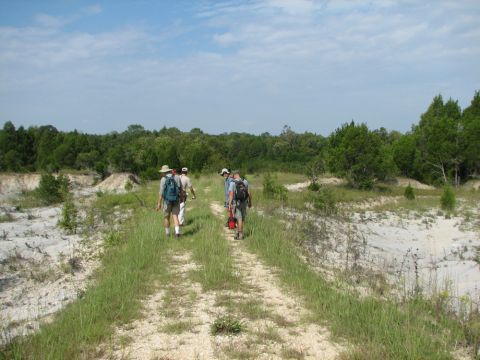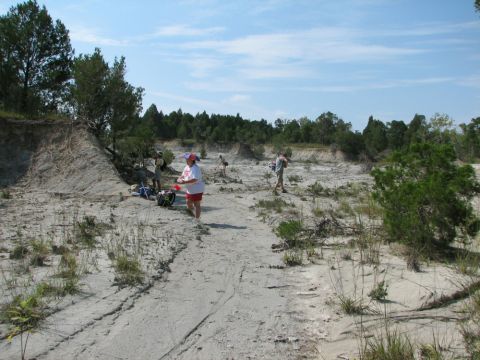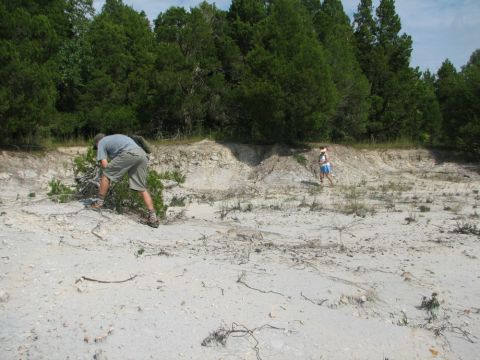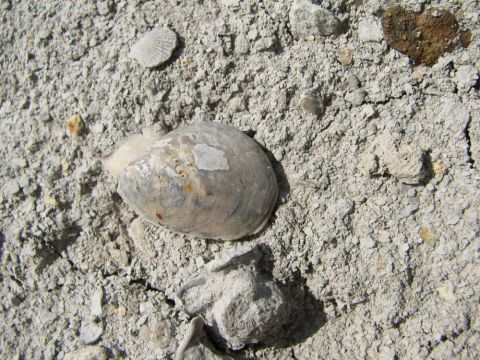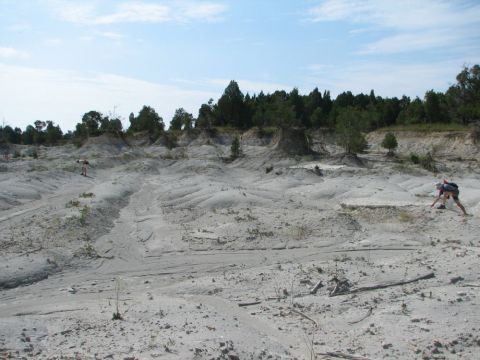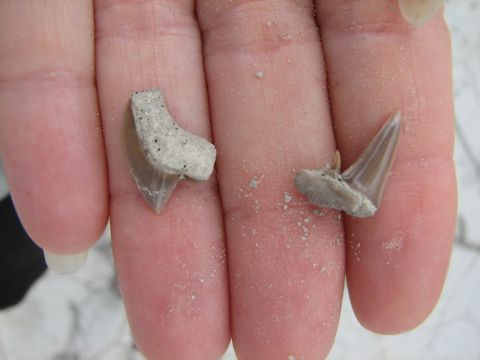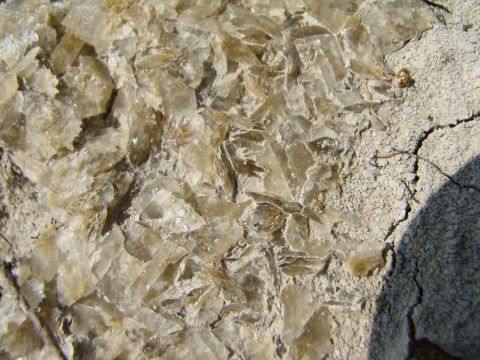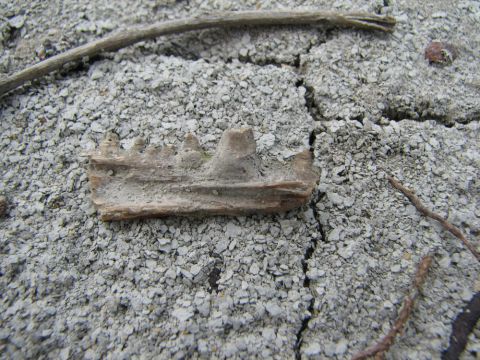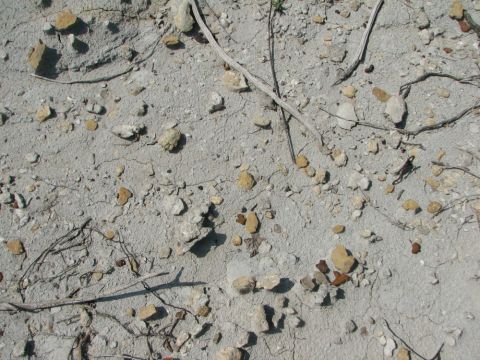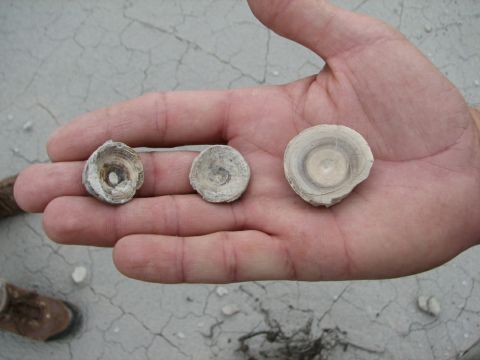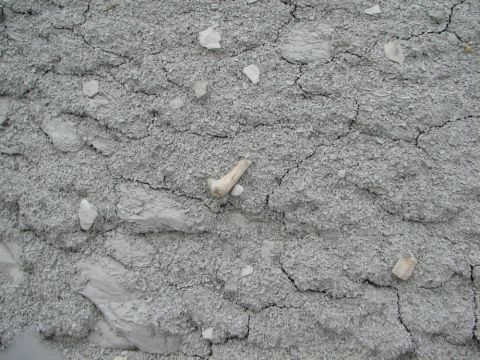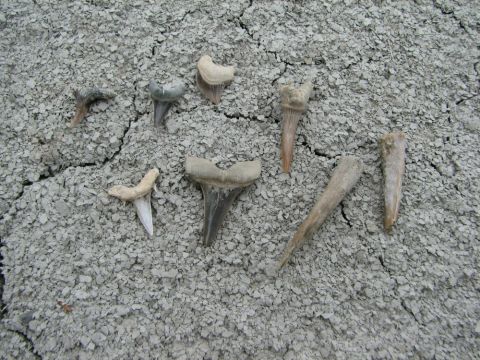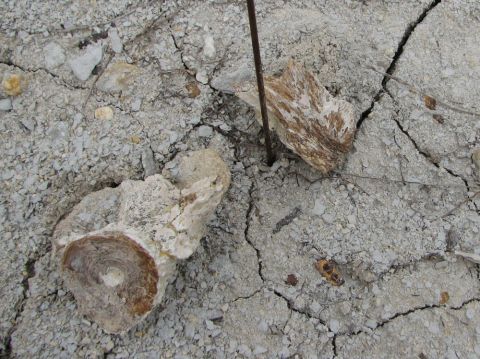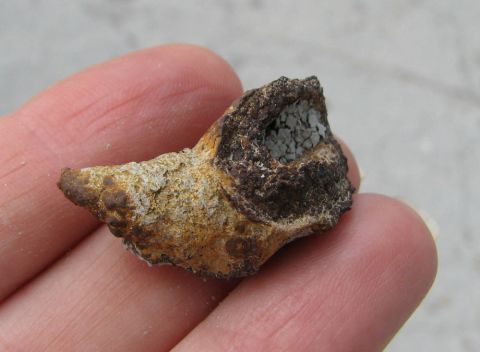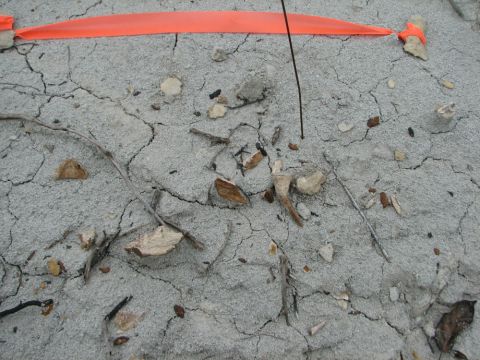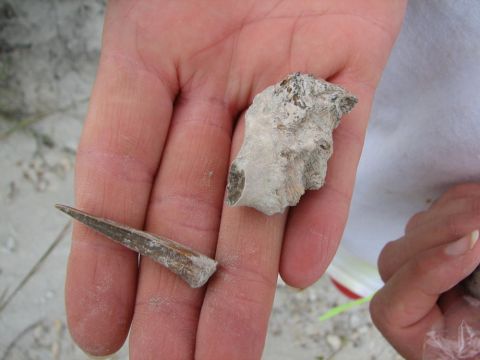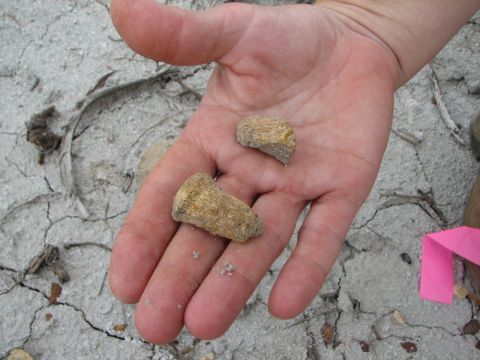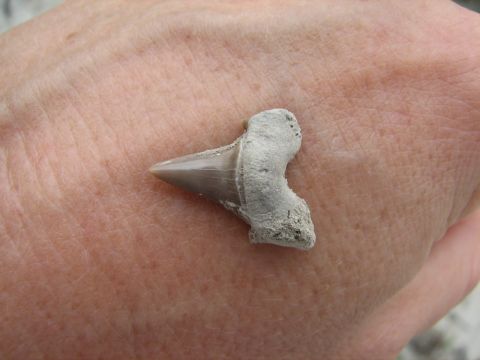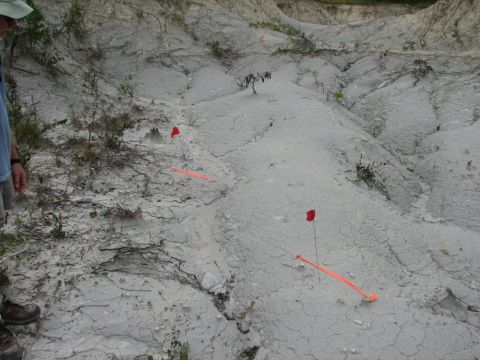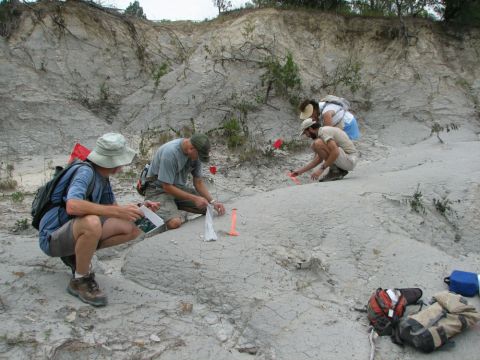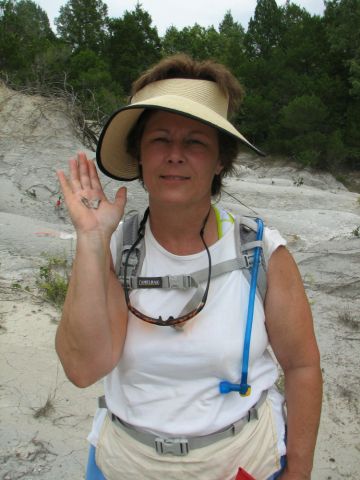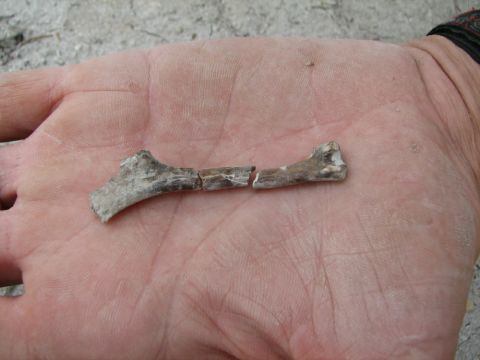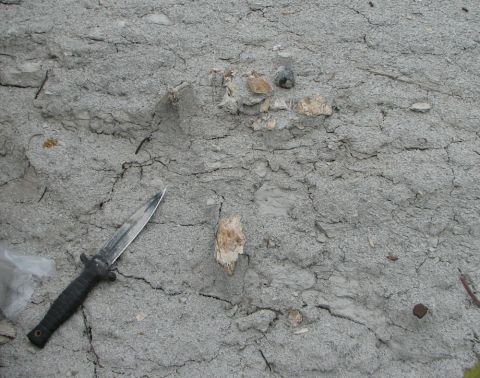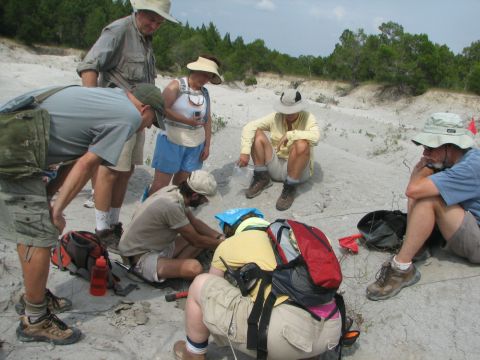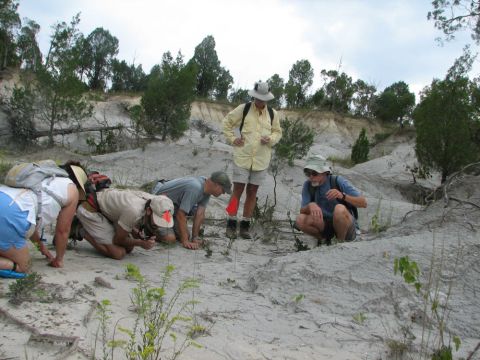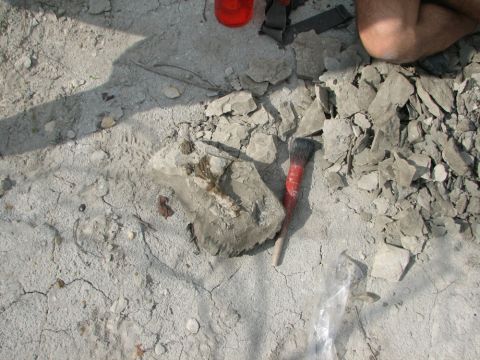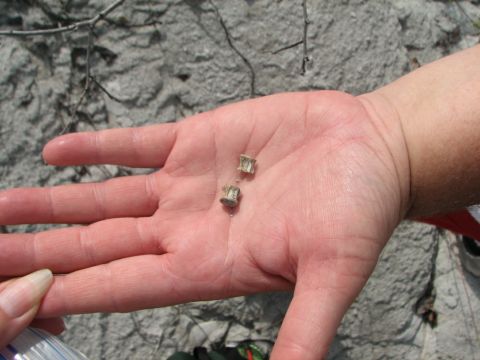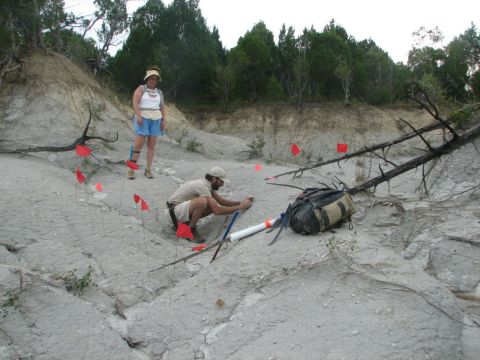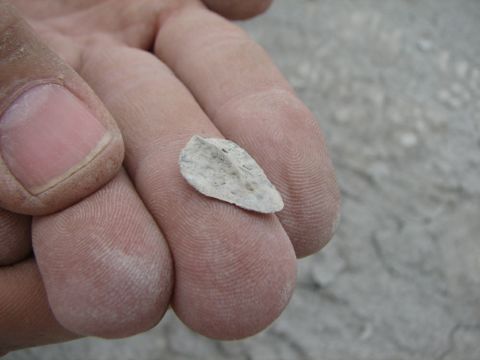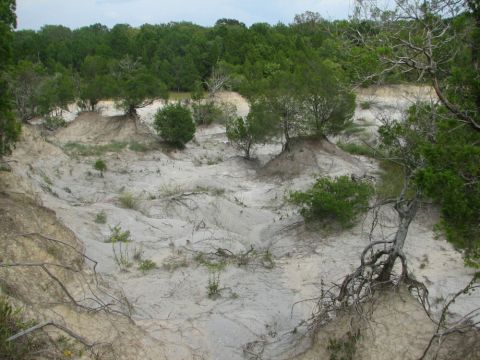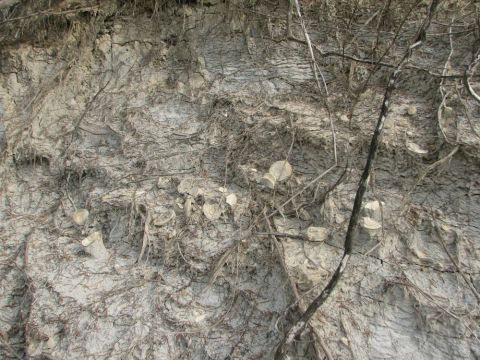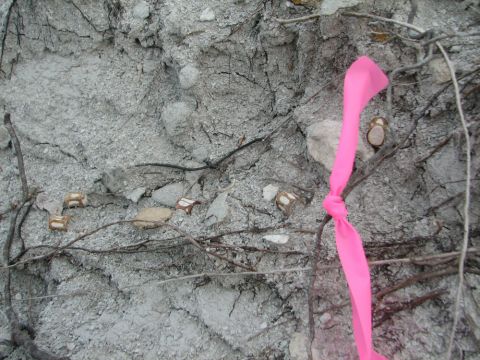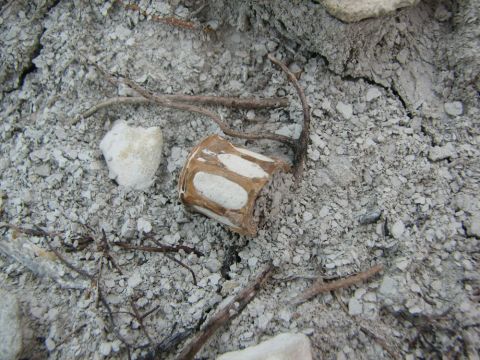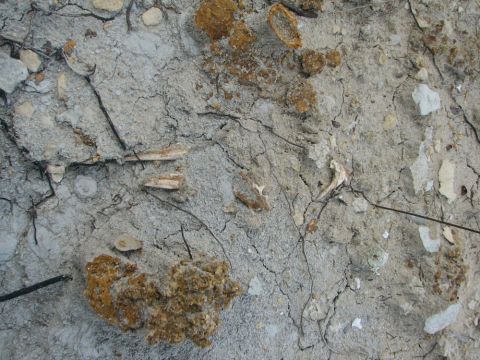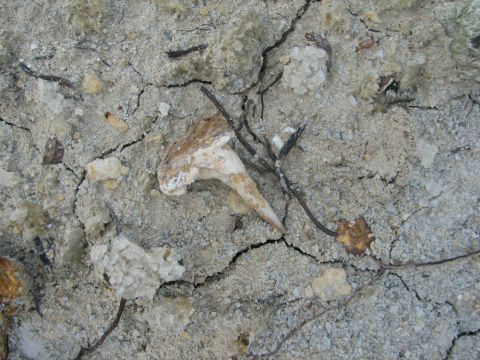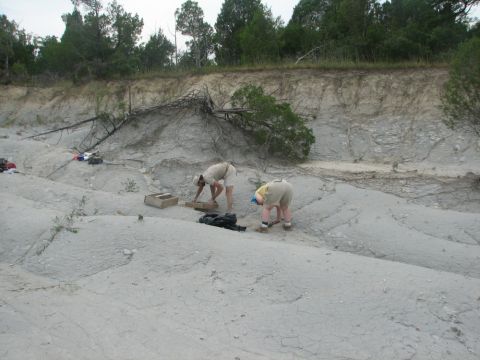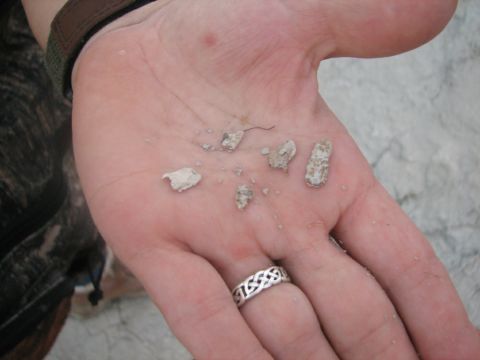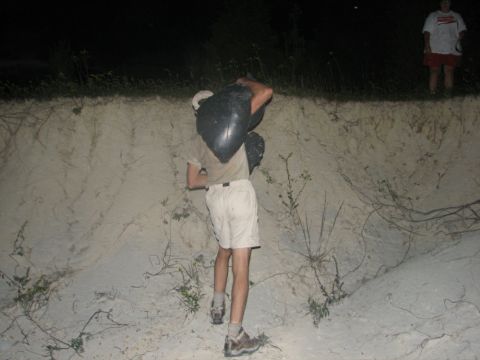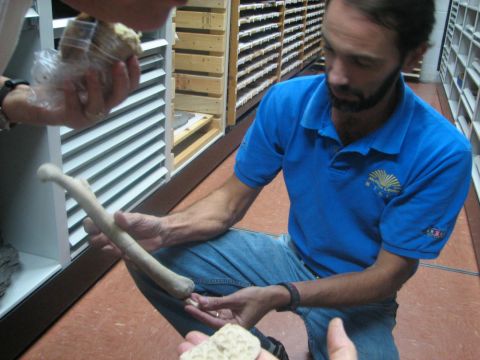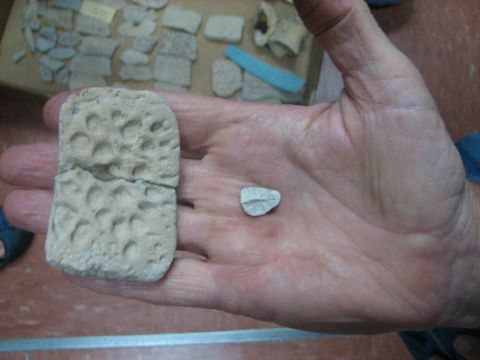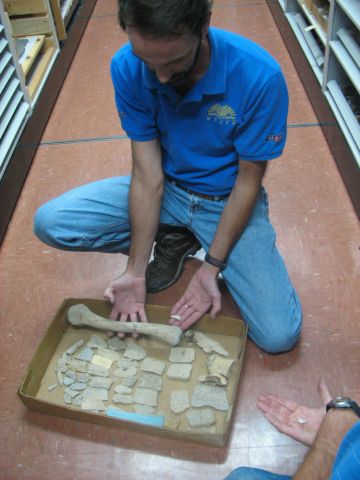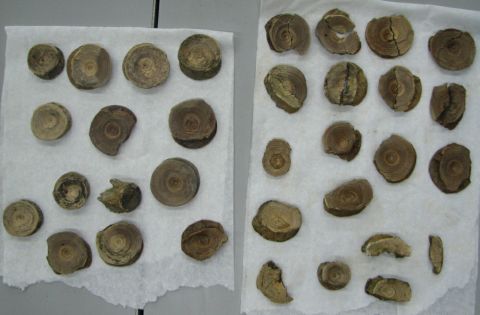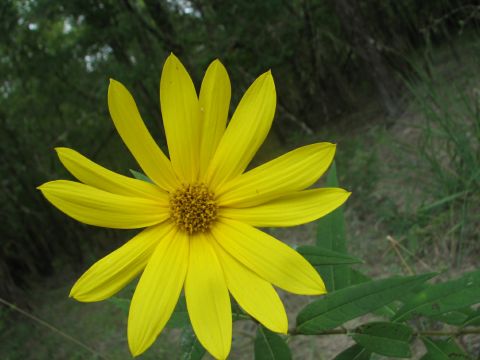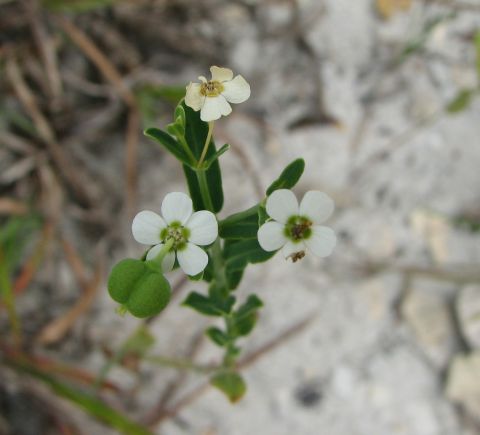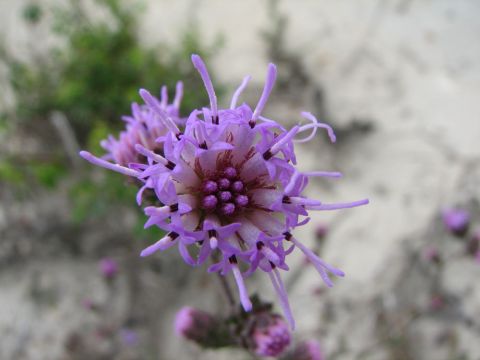Once again, BPS took a trip south to Dallas county, Alabama, to search in the extensive Cretaceous chalk gullies found there. This was our last gully trip of the season, since hunting season is about to start, so we were in a frantic hurry to collect the items we had previously flagged, and find as much as we could so it could be preserved, and not get washed down a gully, and potentially lost for research. In addition to the normal variety of shells, shark teeth and vertebra, fish including enchodus, and turtles, this month a baby crocodile was found, the first one found in Alabama, so we were quite excited.
(Photos courtesy Joey Golson and Vicki Lais)
After a slight delay, well, a very long delay, due to a mixup in who was going to call who, we finally gained access to the site. To get to this new set of gullies, we had to drive in, then park and walk the rest of the way.
We've just gotten into the gully, and are preparing to survey in different sections so we can cover the entire gully several times.
When we first arrived at the gully, it was difficult to find anything. No matter where we looked, it didn't seem like there was anything other than rocks and broken shells.
Part of a fossil fish jaw, with several teeth still embeded in the jaw.
Part of what makes it difficult to find fossils is the large quantity of rubble on the ground, that all looks like fossils. One has to tune out the "trash" and tune in to the correct shapes before being able to spot vertebra and teeth.
This tiny bone found by Vicki turned out to be one of the most important finds of the day. At first thinking it was a very large bird, after closer examination, James realized it was a baby crocodile, the only baby one found in Alabama! After waving us all away from the area, he proceeded to search on hands and knees, finding at least 8 tiny scutes, which had been missed when the bone was flagged. He even hiked back to the cars to get a screen, so the area below the find could be searched. If you examine the photo carefully, the small items that look bits of broken shell are actually parts of scutes.
A fish is being carefully excavated from the side of this gully. It was found by accident, when the tooth part of an enchodus jaw found on top of the gully rolled down, and we were hunting for the broken off tooth.
Back half of a fish that was embedded in the chalk gully wall. According to James Lamb, it was only half there when it fossilized - none has been lost. After finding so many partial fossils, we are speculating that this was a shallow feeding ground.
This is where the baby crocodile bone and tiny scutes were found. James is flagging the highest point; there is a flag where every single fossil has been found. Afterwards, the entire area will be scoured on hands and knees for more bones and scutes.
A large number of shark vertebra were found on the side of this chalk bank. More vertebra, both whole and broken, littered the ground below, where they had washed down the gully. After collecting, washing and sorting out the pieces, it was discovered there were approximately 20 whole vertebra found at this spot.
Very badly worn fish bones, based on the tooth, it looks like a type of enchodus.
This is the location where the baby crocodile bone and scutes were found. James and Claire are sifting the dirt down the gully from the find, in hopes of finding more scutes and bones.
Gully season is over for the year due to hunting season. On a prior trip, parts of a fossil were found, and James is hoping to find more small bones in the large bags of dirt he collected from the same area. We had so many fossils to collect, it was dark by the time we arrived at this gully.
James Lamb pulls out a tray of fossil crocodile bones, to show us the difference in the size of the baby crocodile bone we've found, and what is normally found in Alabama. He is holding the same bone in both hands.
Back at the lab, James showed us the difference in size of the baby crocodile we found in the gully, and what is normally found in Alabama. This scute is the smallest one found in Alabama thus far.
James Lamb demonstrating the difference in size of the baby crocodile bone and scutes we found, and those of an adult.
Remember the pile of shark vertebra laying on the side of the gully? This is them after being cleaned up in the lab.

